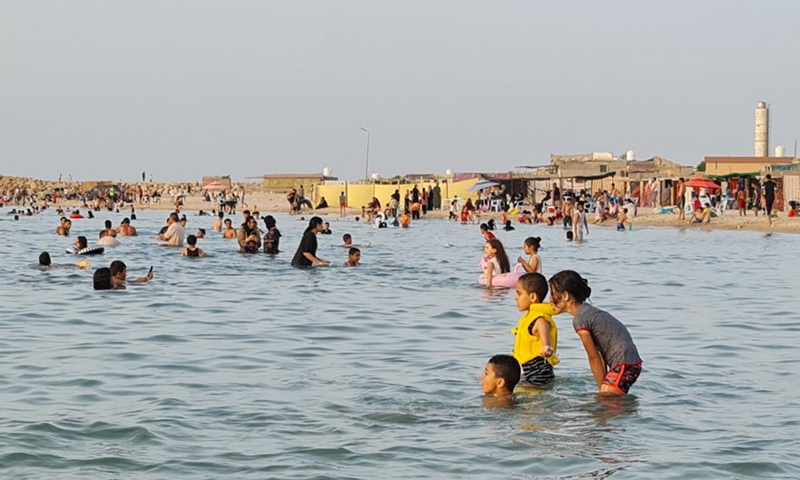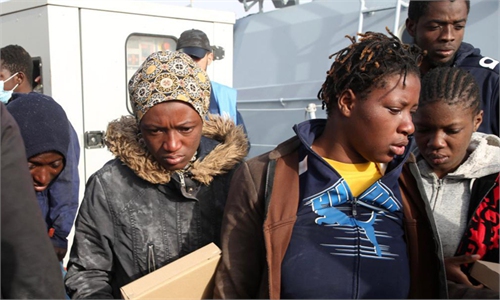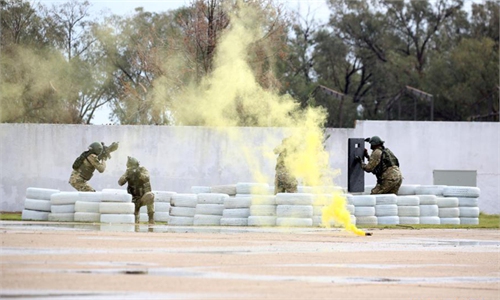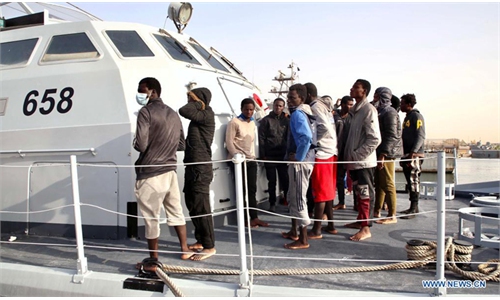Failure of Libya talks endangers December vote: analysts
No compromise reached in Geneva

People cool off in the sea off Garrabulli town, some 55 km east of Tripoli, Libya, on June 29, 2021.(Photo: Xinhua)
The failure of UN-led talks on Libya to reach a compromise over December elections could endanger a roadmap that had raised hopes of ending a decade of chaos, analysts have warned.
Seventy-five delegates from the war-torn North African country aired their differences at rowdy meetings in Geneva last week.
But despite an extra day of unscheduled talks, they remain divided over when to hold elections, what elections to hold, and on what constitutional grounds.
"No consensus was reached among the Libyan Political Dialogue Forum [LPDF] members" on the contentious question of a constitutional basis for the previously agreed December 24 polls, the UN acknowledged in a statement on Saturday.
Oil-rich Libya was plunged into chaos after dictator Moamer Kadhafi was toppled and killed in a 2011 NATO-backed uprising.
Two rival administrations later emerged, backed by a complex patchwork of militias, mercenaries and foreign powers.
While Turkey supported a UN-recognized administration in Tripoli, eastern-based Khalifa Haftar enjoyed backing from the UAE, Egypt and Russia.
Under a UN-backed ceasefire agreed in October 2020, an interim administration was established in March to prepare for presidential and parliamentary polls on December 24.
The UN's Libya mission UNSMIL, in its statement Saturday, warned that "proposals that do not make the elections feasible" on that date "will not be entertained."
But analysts said foreign parties were pushing Libya's rival camps apart.
"The differences which emerged in Geneva were to be expected," said Khaled al-Montasser, professor of international relations at the University of Tripoli.
The LPDF members were supposed to have agreed by July 1 on the constitutional basis for parliament to adopt an election law.
"We had a consensus on a draft text... but right from the start of the [Geneva] meetings, it was brought into question by certain members who made new proposals," one delegate told AFP, asking not to be identified.
But Jalal al-Fitouri, a law professor, said the divisions were "orchestrated in advance."
"It's not a secret to anyone that the [foreign] states monopolizing the Libya file... put pressure on those who represented them within the LPDF in Geneva," he said. "Each state supports a particular side and has a position on how to hold the vote and on conditions for candidacy."
By manipulating the process, foreign players are hoping to ensure their favorites come to power and can represent their interests in Libya's lucrative post-war reconstruction, Khaled al-Montasser said.
AFP



